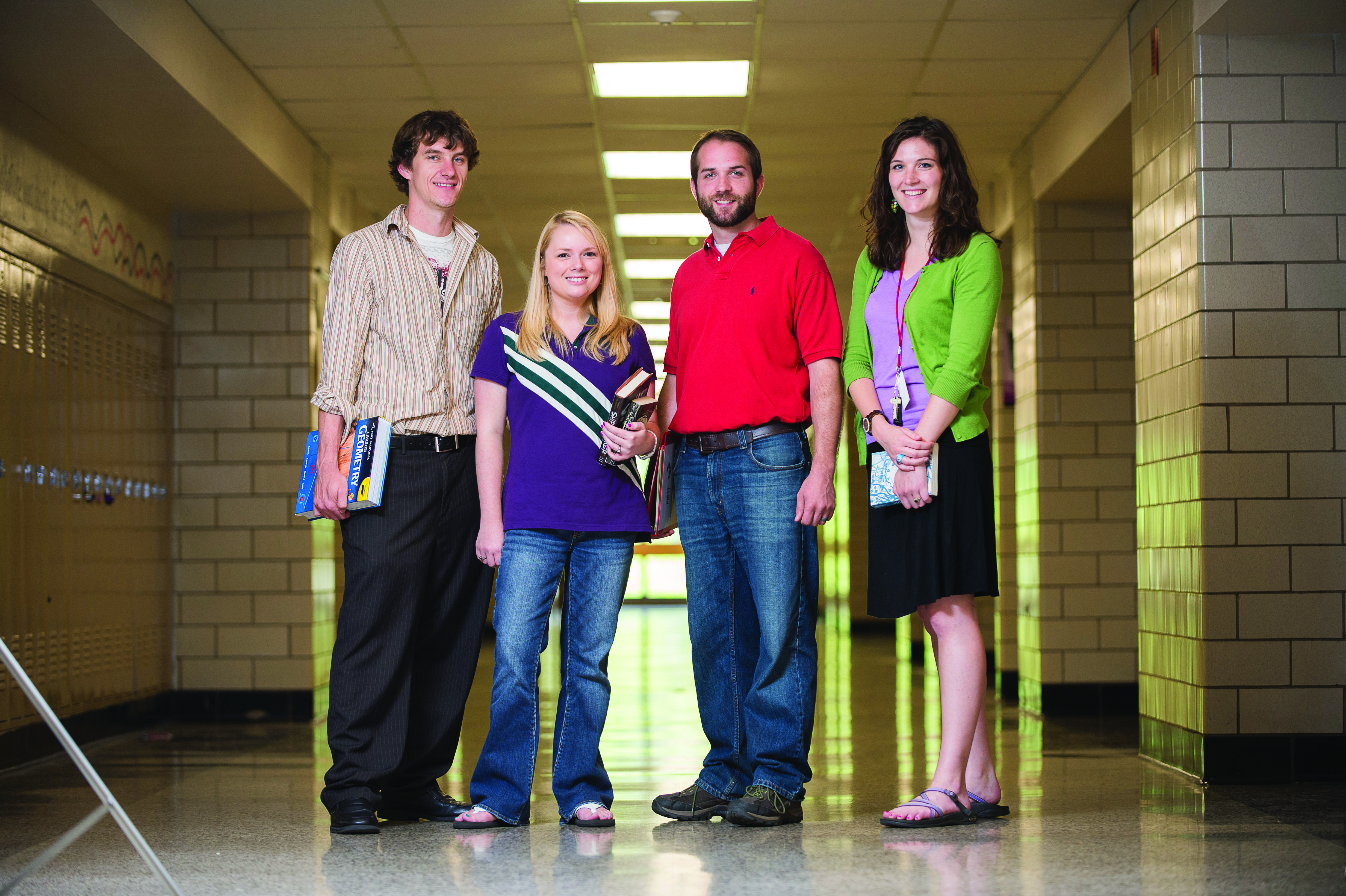For decades, classroom experience has been recognized as one of the most influential components of teacher preparation. The Department of Theory and Practice in Teacher Education (TPTE) is taking the rigorous academic rite of passage and making it intensive—yielding great results for the teacher interns and the schools in which they teach.
Partnering with local schools is at the heart of the TPTE mission in preparing beginning secondary teachers for licensure. In the department’s Track II secondary education initial licensure program, fifth-year students must complete a yearlong, unpaid internship as interns at local partnership schools. Central High School teacher Andrea Keck (’11) says the program “perfectly blends expectations of a classroom teacher with the responsibilities of a UT student.”
During the year, teacher interns work closely with mentoring teachers at their schools observing and shadowing them before teaching independently. After the school day, students return to UT to take courses in content pedagogy—helping turn theory into practice.
“The partnership benefits teacher mentors, as they learn about new pedagogical strategies, gain a co-teacher in the classroom, and gain leadership/professional development experience,” says Susan Groenke, program coordinator of secondary English. Another benefit for student interns is the possibility of being hired full-time after completion of the internship.
School administrators in partnership schools have hired graduating interns as a result of the year spent in their schools and the fact that they have much more extensive experience than most beginning teachers. Social studies teacher Paegan Turner (‘11) was hired after her internship at Powell High School and says the internship was the most useful experience she had during her time at UT.
“College instructors can talk about teaching in a classroom as long as they want, but until you are in the school you have no idea what it is really like,” Turner says. “The hands-on experience was the best teacher.” Groenke says that the quality of the field experience is strongly correlated with new teacher performance in the classroom and even future teacher behavior. Moreover, most teachers rank the internship as the greatest lasting factor in shaping their teaching.
John Alexander (’10), a science teacher at Central High School, credits the yearlong internship with making his transition into teaching a little easier. “I’m a second-career teacher, so when I went into education I was relatively unfamiliar with the education system, and even more unfamiliar with actively being a part of a classroom filled with students,” he says. “The internship was crucial to my orientation into education and it allowed me to develop with steady guidance along the way.”
Groenke says the success of the internship has proven the necessity of partnerships with local schools. “We are proud of the partnerships we have in place with local schools. They are paramount to the creation and development of excellent beginning teachers. As Helen Keller once said, ‘Alone we can do so little; together we can do so much.’”

